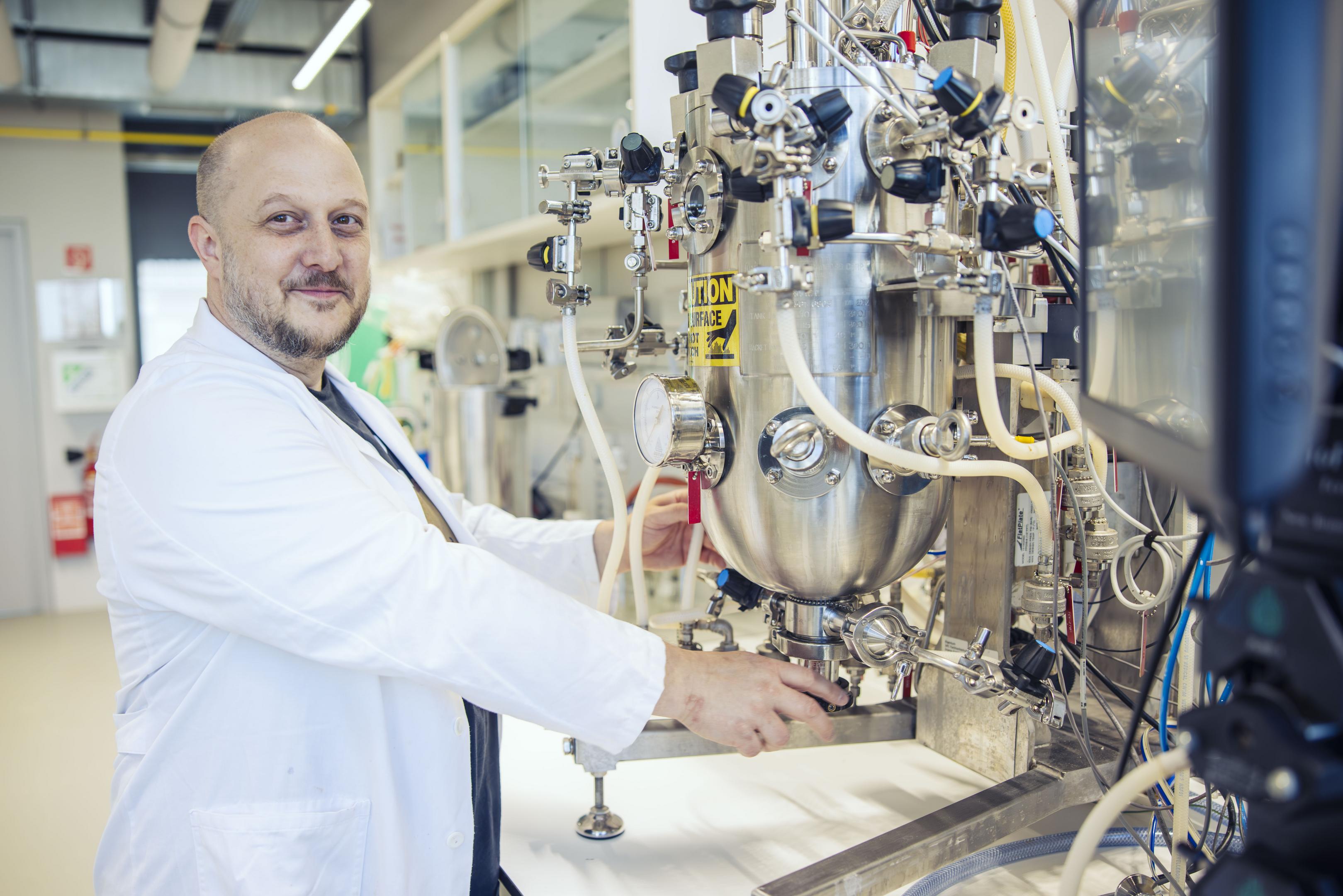IMC Krems University of Applied Sciences has established itself as an institution with outstanding expertise in the field of fermentation technology in the area of bioprocess engineering. Under the leadership of Professor Dominik Schild, who has been playing a key role in developing this research focus for over a decade, the university is developing solutions that are recognised far beyond Austria’s borders. Bioprocess engineering, which combines scientific and engineering processes, provides a solid basis for innovative projects at IMC Krems that shape the international biotechnology landscape.
Press
IMC Krems: cutting-edge research in bioprocess engineering

Bioprocess technology: a key area for health and environmental technologies
Bioprocess engineering is an interdisciplinary field of research that utilises the complex mechanisms of biological systems to develop important products such as medicines, food or biotechnological materials. At IMC Krems, one research focus is on fermentation technology, one of the central procedures for the production of biotechnological substances. In specially controlled environments, microorganisms – including bacteria and fungi – are cultivated and manipulated in such a way that they produce enzymes, antibiotics or more complex active ingredients. In cooperation with the Austrian Red Cross, this research supports, for example, the development of highly precise diagnostic proteins, which are crucial for use in blood analysis.
In blood diagnostics, these proteins act as “biological filters” that bind drug residues and thus increase the accuracy of blood tests. These biotechnological innovations are used particularly in laboratories operated by the Austrian Red Cross to make test results more precise and reliable. “The targeted use of microorganisms opens up new possibilities for medical diagnostics and therapy,” Schild explains. The development of these technologies represents a decisive step for modern laboratory medicine and increases the safety and reliability in health care.
Sustainable resource recovery through biosorption
In addition to the medical field, the IMC research group is intensively dedicated to the analysis of environmentally friendly technologies, in particular the recovery of resources from waste products, focusing on a process known as biosorption: this process enables the extraction of valuable metals such as rare earths from aqueous solutions using biological materials such as algae or fungi. This technology offers sustainable solutions to the problem of rare and expensive metals, which are indispensable in modern electronics.
For example, electronic waste – including discarded mobile phones and computers – could be treated using biosorption to recover metals that are necessary for developing modern technologies in an environmentally friendly and cost-efficient way. “Biosorption could play a key role in the circular economy by offering a sustainable alternative to conventional extraction methods,” Professor Schild emphasises.
Far-reaching future prospects for health and the environment
IMC Krems’s research expertise demonstrates the enormous potential of bioprocess engineering to drive profound changes in both the health and environmental sectors. Through the intensive use of state-of-the-art biotechnological processes, IMC Krems contributes to revolutionising the production of medical diagnostic substances while at the same time recovering valuable materials from waste – and in an environmentally friendly way.
As research in Krems continues to advance, the possibilities for setting new standards in medicine, diagnostics and resource utilisation through bioprocess engineering are further expanded. The research priorities of IMC Krems create new perspectives and make the university an international pioneer.
